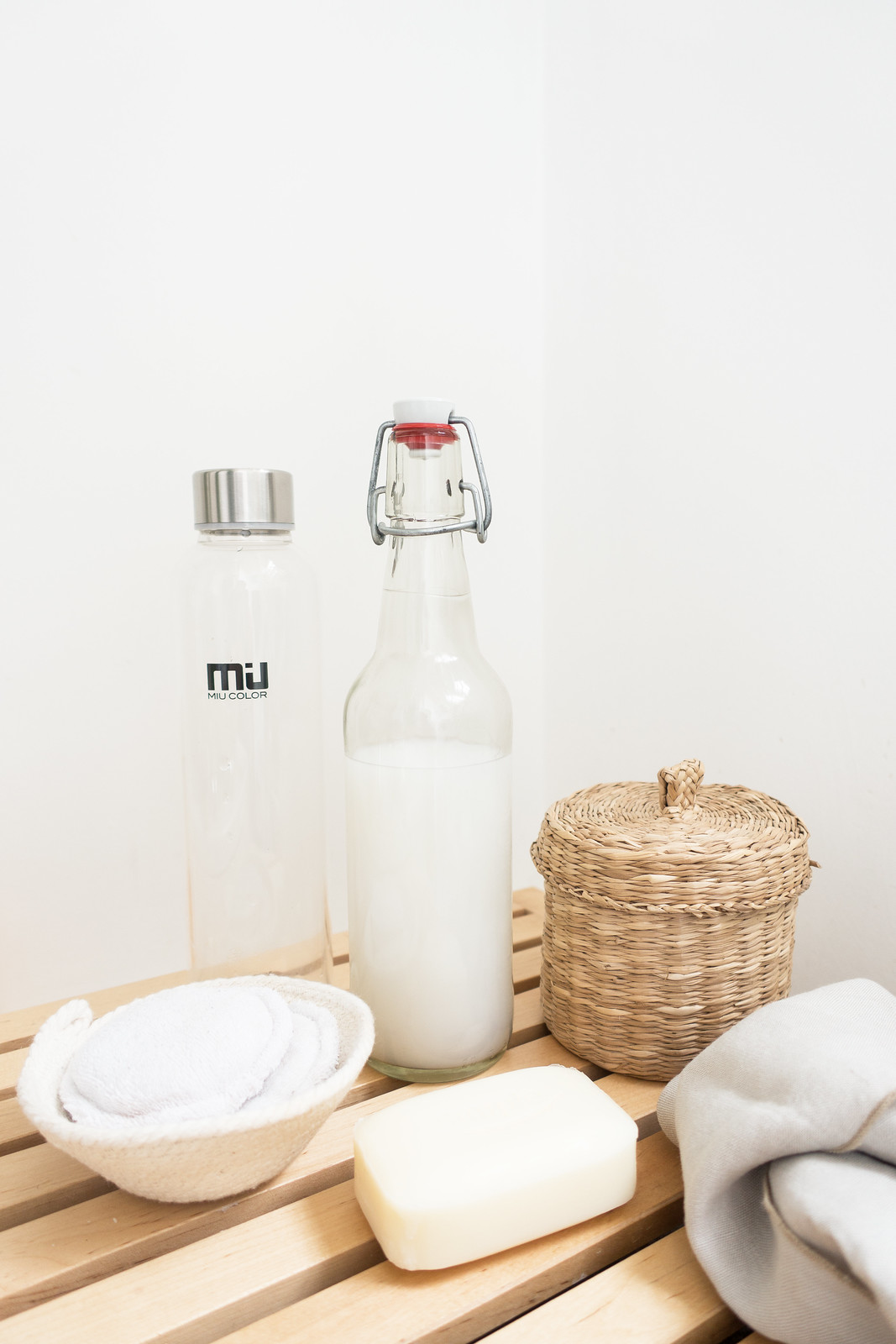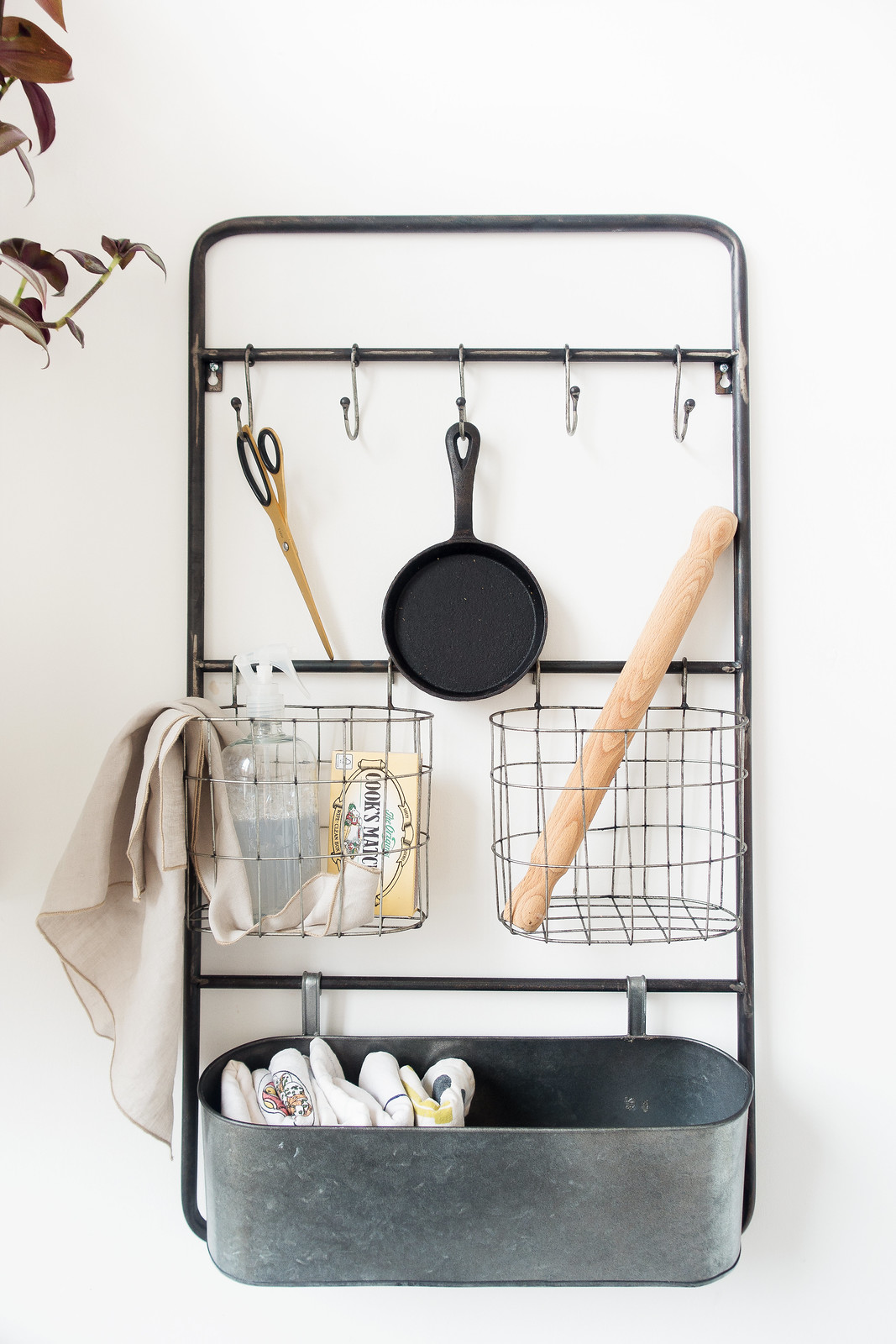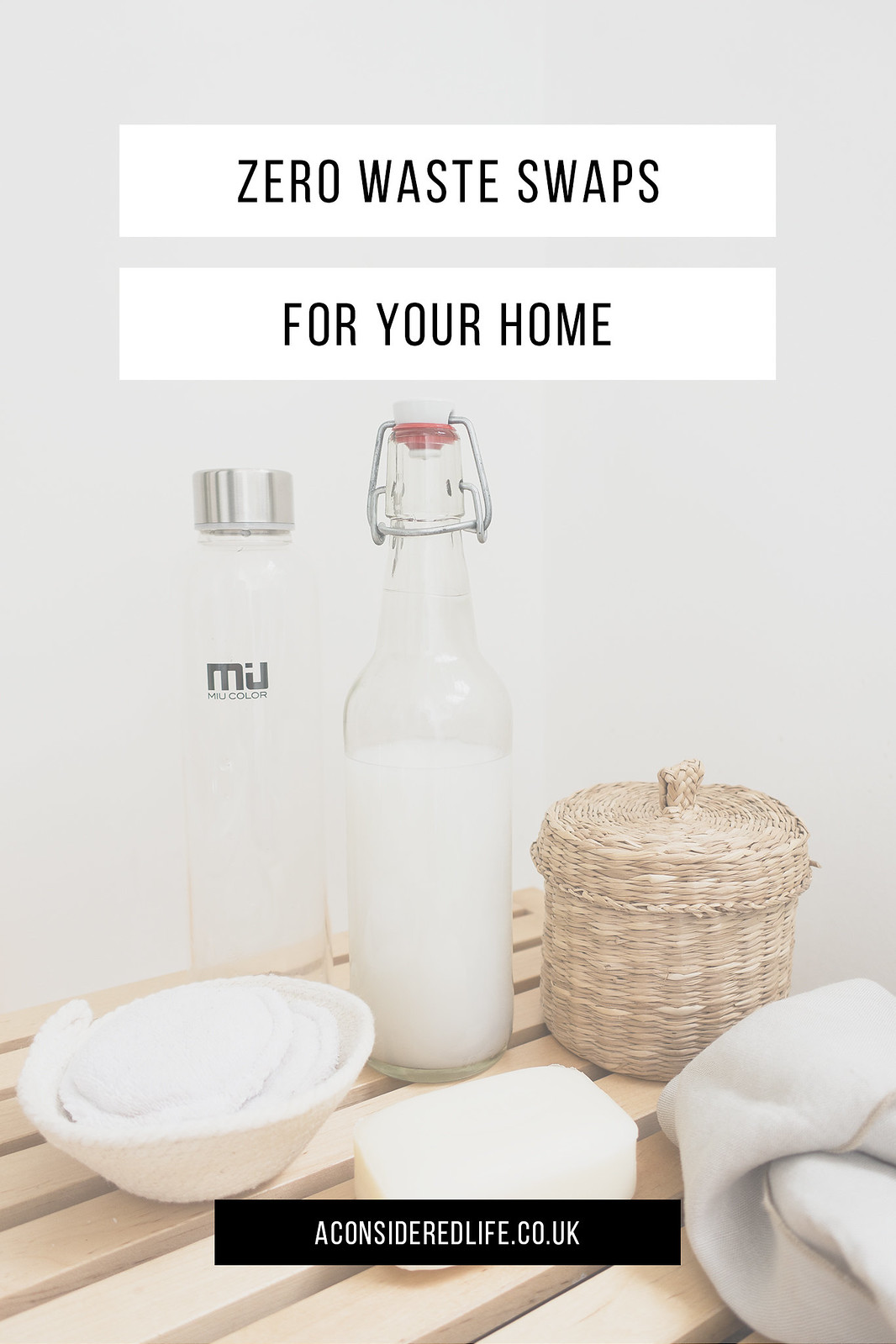
Trying to change the way you live your life all at once is a tough task. It’s too much of a shock to the system. But you know what does work? Small changes here and there. These modest adaptations can make a big difference; they all add up, and as your habits change the easier it becomes to make more low impact swaps and sustainable choices.
Over the past few years I’ve been focusing on lowering my impact by making more sustainable choices at home. It started with the very easy switch from disposable paper towels to reusable bamboo ones. The aim has been to cut down on waste and the use of environmentally-unfriendly products by switching to more sustainable products.
These are some of the 'zero waste swaps' I have made at home and why I made them. I've tried to keep this list to swaps I think are achievable for most people, if not everyone. Hopefully it will inspire you to adopt some of these habits too.
No Plastic Wrap
Plastic wrap is so convenient. It keeps food fresh for longer and makes it possible to freeze certain items. But it’s just as easy to use the eco-friendly alternatives. Reusable food wraps are available although a tea towel or plate to cover, or glass storage are just as good solutions to saving food from going to waste. Same goes for parchment paper and tin foil, there's an easy fix for those too: reusable silicone mats.
I hate cling film so I was eager to ban this completely from our home as quickly as possible, although it didn’t happen without a struggle. When I finally managed to banish it for good, the sustainable replacement came in the form of glass storage from Pyrex given to us after a photoshoot. It’s far more convenient to stack them in the fridge or freezer, they can be used in the microwave and oven, and the snap-top lids keep food exceptionally fresh.
Eco-Friendly Cleaning Products
This is an easy switch and one of many cruelty-free choices we can all make. Eco-friendly products are now widely available in and most are comparable in price to generic cleaning products. Most supermarkets offer eco-friendly options; Sainsbury's has a large range of eco-friendly products as does Waitrose, and Tesco have a purse-friendly household eco-range.
Bulk buying, if possible with your budget, can really help reduce the cost of necessary household items, things like toilet roll, laundry detergent, washing up liquid, and cleaning products. I buy all our household supplies in bulk from Ethical Superstore; their product ethics and tags help identify which products are eco-friendly and vegan. If you're ready to make the switch, I highly recommend the Bio D range.
Reusable Grocery Bags
There's really no reason why anyone should be still using plastic bags to carry their groceries. Tote bags are stronger, more reliable, and eco-friendly. Get into the habit of keeping totes in your car or in your bag so you don't have to grab them before going shopping. You can use any basic canvas tote but if you want something sturdier invest in a dedicated shopper, like these made by Baggu.
This wasn't really a switch that had to be made in our household. I've always chosen to take my own bags to supermarkets (or struggle to carry everything home when I forget to take one with me!) The real challenge was avoiding people giving them to me altogether. We shop at a Farmer's Market and stallholders are all too eager to package your produce in plastic; saying "no thank you" and handing the bag back was the real challenge.

No Plastic Bottles
The production, shipping, and recycling of bottled water uses unnecessary resources and contributes to pollution. Tap water is safe to drink in the UK and Ireland and although the bottled variety may taste more pleasant to you, many brands of bottled water are simply filtered tap water. Coupled with the fact that plastic can leach BPA and other chemicals into the water you're drinking, the safest option is to stick to tap water. Invest in a water bottle you enjoy drinking from and ditch bottled water. Chilly's have a great, affordable range of eco-friendly bottles, as does Stay Sixty, BKR, and Kleen Kanteen.
I refuse to buy bottled water, not just on the grounds of the plastic waste it causes but because I hate the idea of playing for such a necessity. I drink a lot of water so If I'm leaving the house for any extended period of time I always pack my reusable water bottle to make sure I'm not caught out.
Bar Soap
Switching to bar soap is far more environmentally-friendly than the plastic bottled shower gels and liquid soap. It's cheaper and lasts much longer too. But it's not for everyone, that's for sure. So if you find bar soap is too much hassle, consider making your own liquid hand and body wash and use a refillable pump bottle instead.
This is one of the very first low-impact swaps I made in our house. I was never a fan of the old-fashion, heavily-fragranced soap bars and if you're not either (who would be?) there are plenty of others to choose from. Look for independent online sellers who avoid wrapping their bar soap in plastic or waxed paper, like Honest Skincare and Ravenscourt Apothecary.
Washable Cotton Pads
If there is something we use briefly and then discard, a more eco-friendly option should always be sought after. Cotton pads are one of those items. We use them to remove our make-up and then simply throw them away plus they come wrapped in plastic, which just makes matters worse. It's such an unnecessary waste that has an easy fix. Washable cotton pads can be purchased or, if you having sewing know-how, made, and can be thrown in the washing machine to be used again and again. They're the environmentally friendly alternatives to throwaway cotton pads and cleansing wipes.
I wish I'd make this switch far sooner than I did. I'd tried flannels, muslin cloths, microfibre wipes and yet I always returned to disposable cotton pads because they were so much more convenient. The Love The Planet Washable Cleansing Pads come in a set of 5 (so you're never without one) and a wash bag so you can pop them in the washing machine.
Loose Leaf Tea
Did you know there's plastic in your tea bag? The plastic is there to help heat seal the bags so they don't split in the box or your cup of tea. It means they aren't biodegradable and if you compost them, they will leave microplastic in the soil. Even if you find tea bags that are unbleached, chlorine-free, and 100% biodegradable/recyclable - chances are the packaging involves some kind of plastic. The best option? Switch to loose leaf tea.
I find loose leaf tea tastes so much better than tea bags so, ever since I can remember, I've always opted for the loose variety. The packaged boxes you can pick up in shops tends to come wrapped in plastic; if you bring your own container you can ask to have that filled instead, which I've done with much success. You may have to buy the shop's own-brand refillable caddys but it's worth it for better tasting tea and zero plastic.
